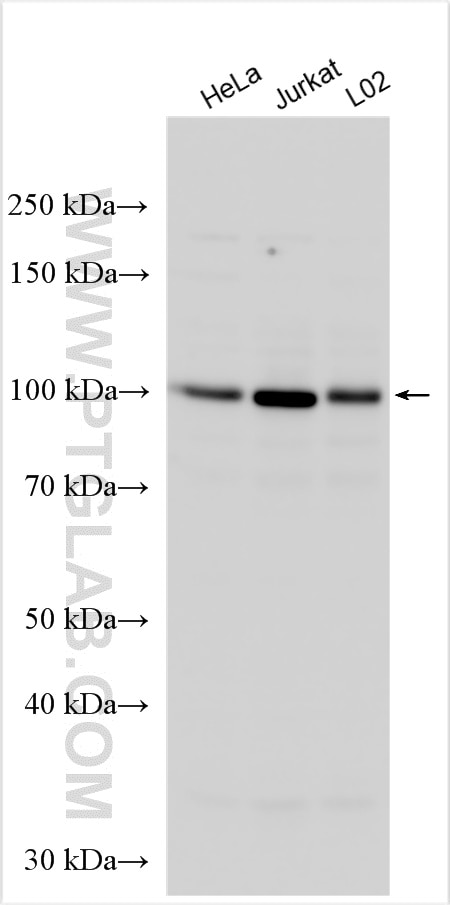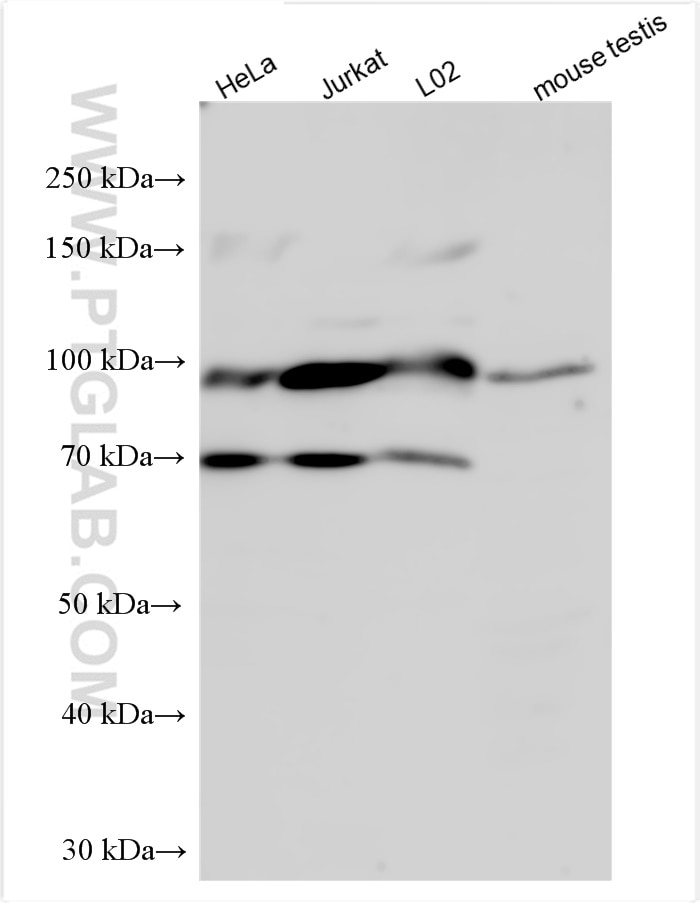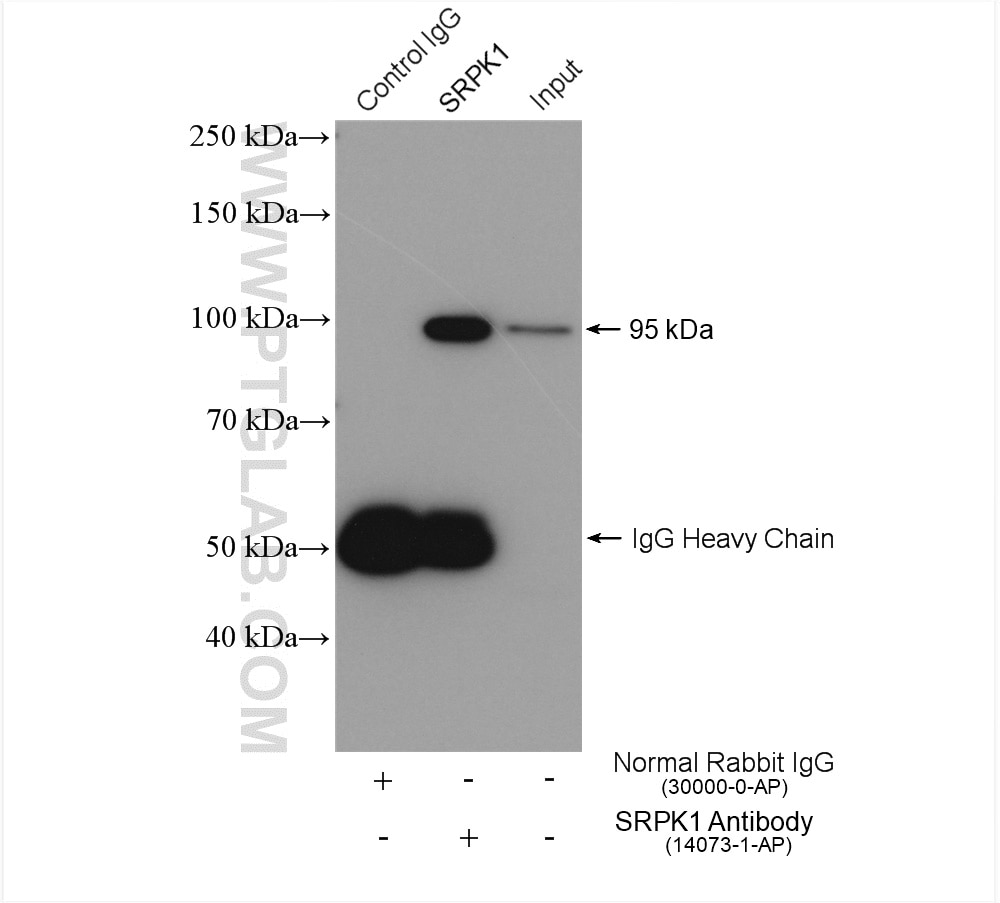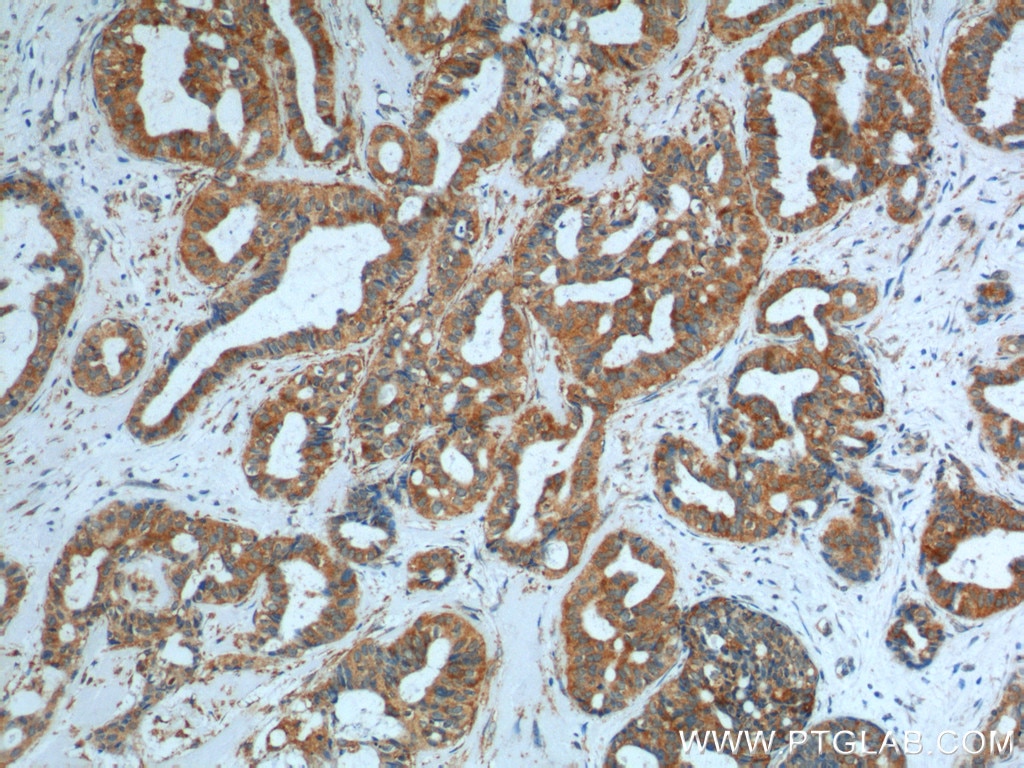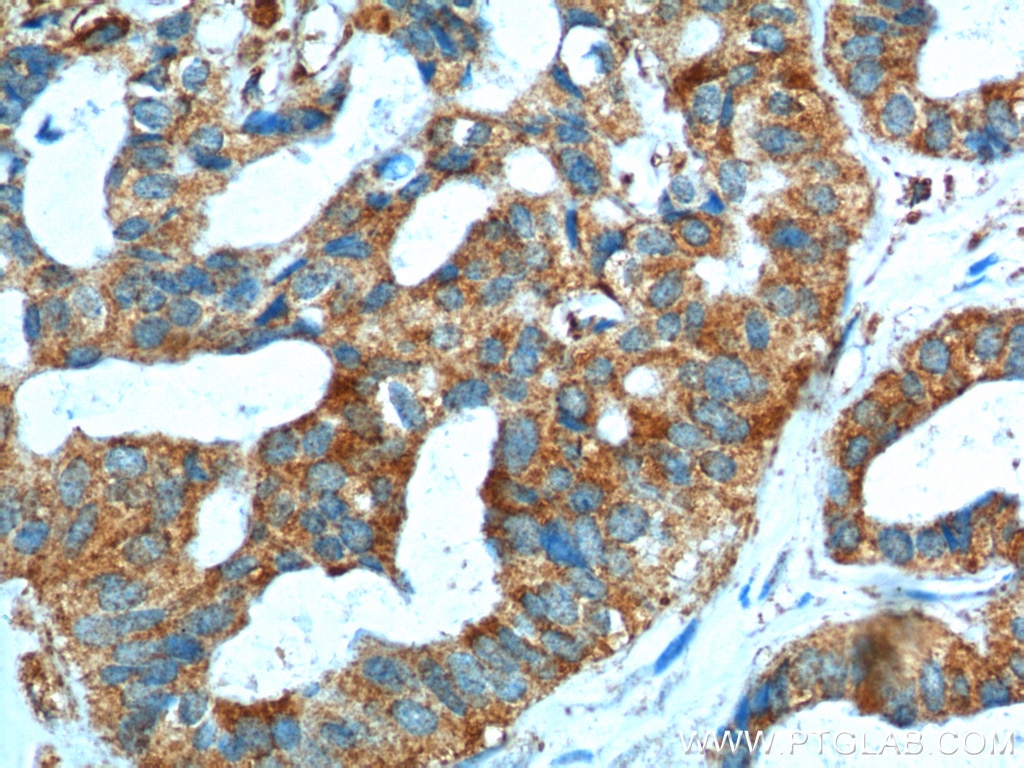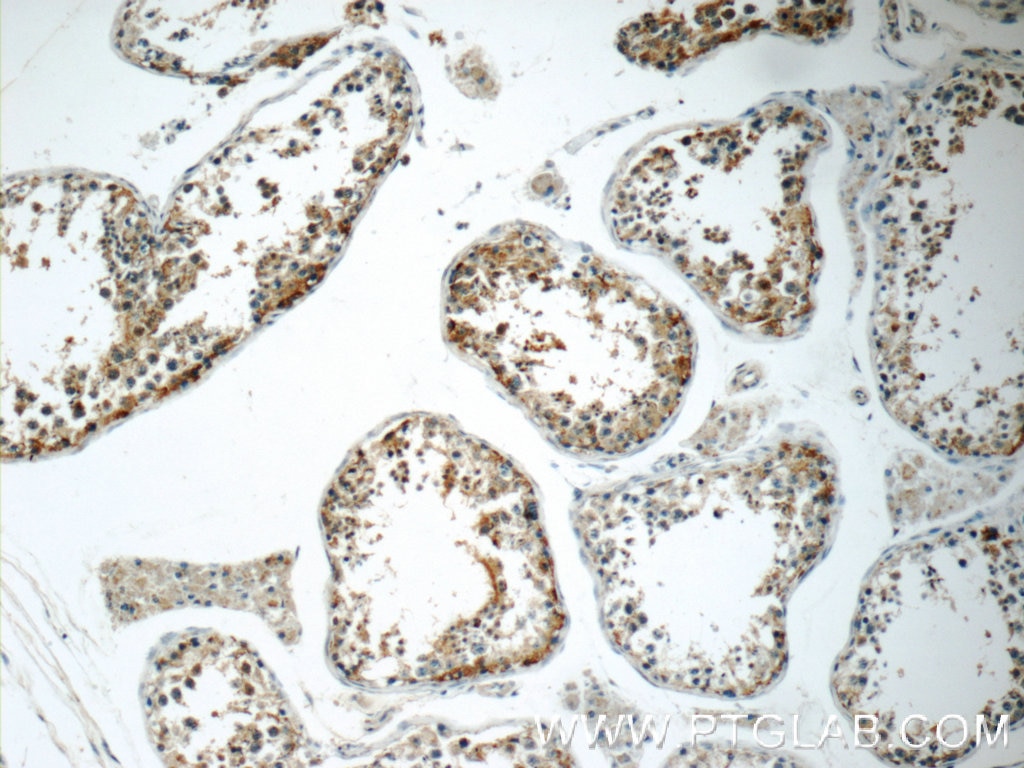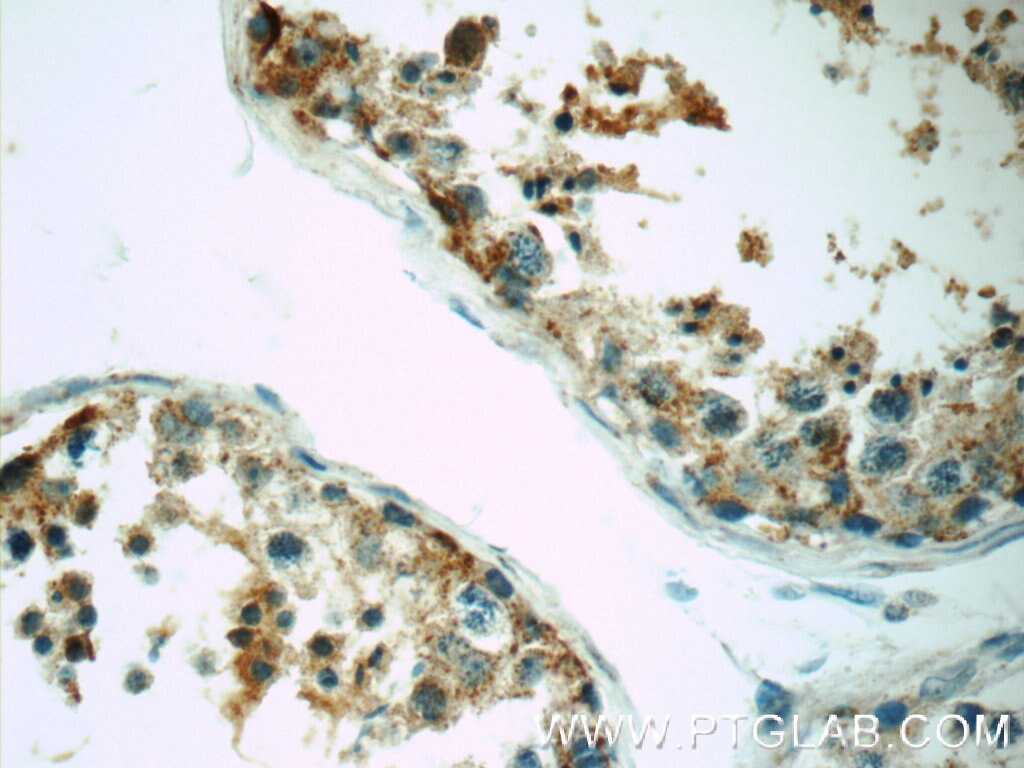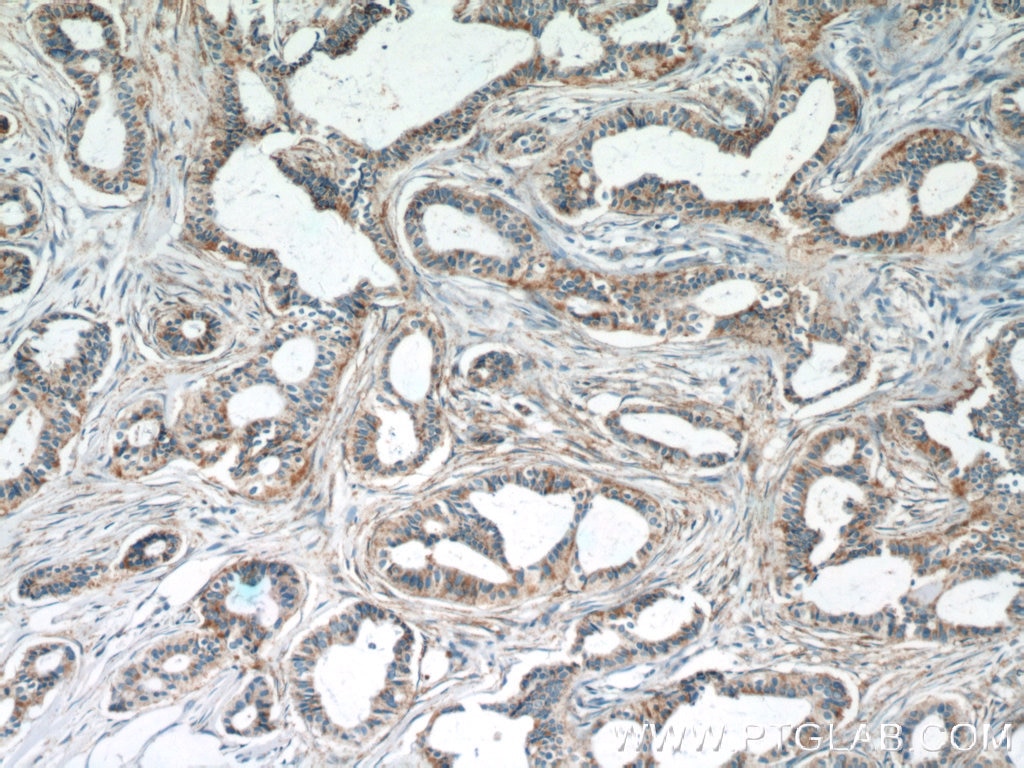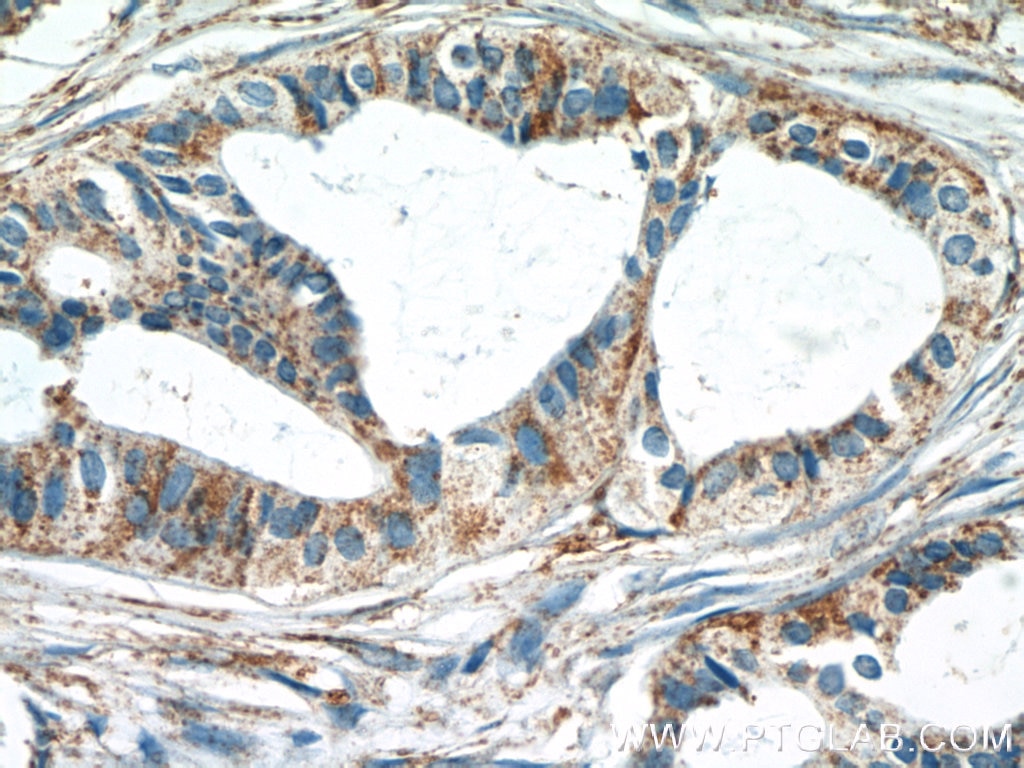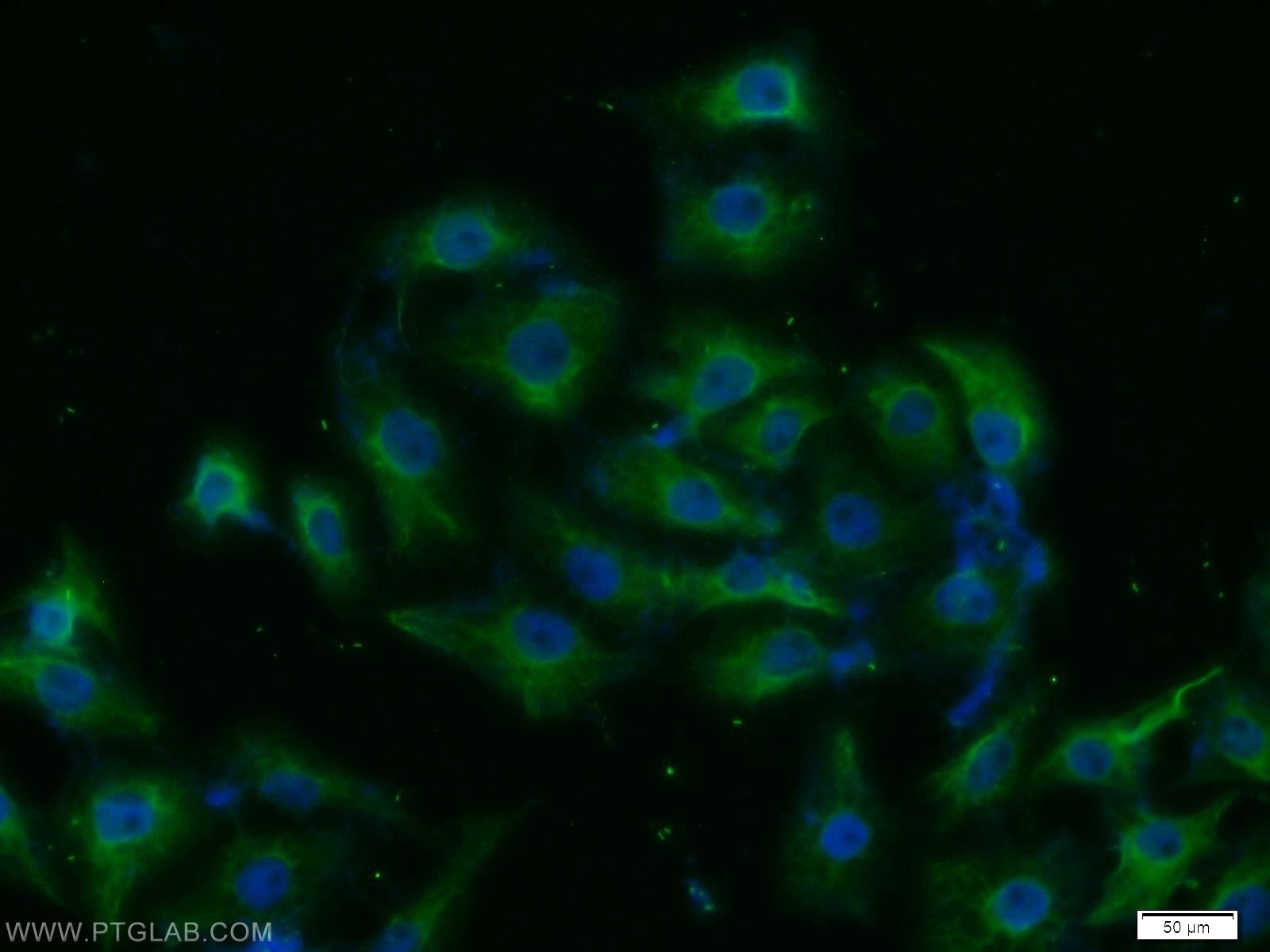Validation Data Gallery
Tested Applications
| Positive WB detected in | HeLa cells, Jurkat cells, L02 cells, mouse testis tissue |
| Positive IP detected in | mouse testis tissue |
| Positive IHC detected in | human breast cancer tissue, human testis tissue Note: suggested antigen retrieval with TE buffer pH 9.0; (*) Alternatively, antigen retrieval may be performed with citrate buffer pH 6.0 |
| Positive IF/ICC detected in | SH-SY5Y cells |
Recommended dilution
| Application | Dilution |
|---|---|
| Western Blot (WB) | WB : 1:1000-1:4000 |
| Immunoprecipitation (IP) | IP : 0.5-4.0 ug for 1.0-3.0 mg of total protein lysate |
| Immunohistochemistry (IHC) | IHC : 1:20-1:200 |
| Immunofluorescence (IF)/ICC | IF/ICC : 1:10-1:100 |
| It is recommended that this reagent should be titrated in each testing system to obtain optimal results. | |
| Sample-dependent, Check data in validation data gallery. | |
Published Applications
| KD/KO | See 2 publications below |
| WB | See 6 publications below |
| IF | See 2 publications below |
| CoIP | See 1 publications below |
Product Information
14073-1-AP targets SRPK1 in WB, IHC, IF/ICC, IP, CoIP, ELISA applications and shows reactivity with human, mouse samples.
| Tested Reactivity | human, mouse |
| Cited Reactivity | human, mouse, chicken |
| Host / Isotype | Rabbit / IgG |
| Class | Polyclonal |
| Type | Antibody |
| Immunogen | SRPK1 fusion protein Ag5149 相同性解析による交差性が予測される生物種 |
| Full Name | SFRS protein kinase 1 |
| Calculated molecular weight | 92.4 kDa |
| Observed molecular weight | 72-95 kDa |
| GenBank accession number | BC038292 |
| Gene Symbol | SRPK1 |
| Gene ID (NCBI) | 6732 |
| RRID | AB_2194745 |
| Conjugate | Unconjugated |
| Form | Liquid |
| Purification Method | Antigen affinity purification |
| UNIPROT ID | Q96SB4 |
| Storage Buffer | PBS with 0.02% sodium azide and 50% glycerol , pH 7.3 |
| Storage Conditions | Store at -20°C. Stable for one year after shipment. Aliquoting is unnecessary for -20oC storage. |
Background Information
SRPK1 (serine-arginine protein kinase 1) is a protein kinase that specifically phosphorylates proteins containing serine-arginine-rich domains. Its substrates include a family of SR proteins that are key regulators of mRNA AS (alternative splicing). SRPK1 may be localized both in the cytoplasm and nucleus and translocates between these compartments under various conditions (e.g. cell cycle and stress). It is able to phosphorylate SR proteins both in cytoplasm and nucleus (the significance of which remains incompletely understood) and thus regulate the activity of these proteins by affecting their ability to bind other proteins and/or RNA as well as their intracellular localization.(PMID:22817743). This protein has 2 isoforms produced by alternative splicing.
Protocols
| Product Specific Protocols | |
|---|---|
| WB protocol for SRPK1 antibody 14073-1-AP | Download protocol |
| IHC protocol for SRPK1 antibody 14073-1-AP | Download protocol |
| IF protocol for SRPK1 antibody 14073-1-AP | Download protocol |
| IP protocol for SRPK1 antibody 14073-1-AP | Download protocol |
| Standard Protocols | |
|---|---|
| Click here to view our Standard Protocols |
Publications
| Species | Application | Title |
|---|---|---|
Cell Metab DRAK2 aggravates nonalcoholic fatty liver disease progression through SRSF6-associated RNA alternative splicing. | ||
Cell Chem Biol Novel RNA-Affinity Proteogenomics Dissects Tumor Heterogeneity for Revealing Personalized Markers in Precision Prognosis of Cancer. | ||
J Cancer Clinical and functional significance of CHK1-S, an alternatively spliced isoform of the CHK1 gene, in hepatocellular carcinoma. | ||
BMC Cancer MiR-659-3p inhibits osteosarcoma progression and metastasis by inhibiting cell proliferation and invasion via targeting SRPK1 | ||
Nat Commun LncRNA-LncDACH1 mediated phenotypic switching of smooth muscle cells during neointimal hyperplasia in male arteriovenous fistulas
| ||
Mol Oncol CDK12-inactivation-induced MYC signaling causes dependency on the splicing kinase SRPK1 |
